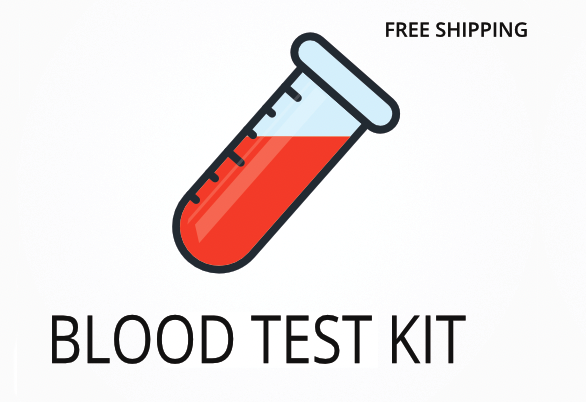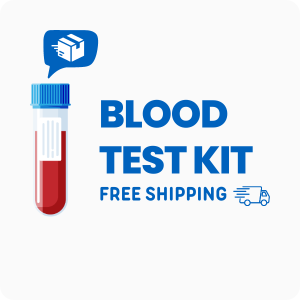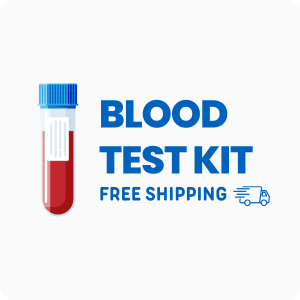Ordering the Babesia duncani IgG and IgM Antibody Test
Babesia duncani IgG and IgM Antibody testing helps detect antibodies that show if someone has been exposed to Babesia duncani, a parasite spread by ticks. This test is often used when symptoms like fever, chills, fatigue, or unexplained anemia are present, especially after a tick bite. Interestingly, Babesia duncani can sometimes cause symptoms that mimic other illnesses, making targeted testing important for clear answers.
Ordering this test can help you:
- Identify if your body has made antibodies against Babesia duncani, which can help confirm a recent or past infection.
- Distinguish between early and later stages of infection by measuring both IgG and IgM antibodies.
- Support your doctor in choosing the right treatment plan based on your immune response.
- Rule out Babesia duncani as a cause of ongoing symptoms when other tests are negative.
- Track changes in antibody levels over time to see if treatment is working.
Who Should Consider Babesia Antibody Screening
People who have spent time in areas where ticks are common and now feel tired, have night sweats, or notice yellowing of the skin may benefit from this test. For example, someone who enjoys hiking in wooded areas and later develops unexplained joint pain and fever might want to check for Babesia duncani exposure.
Ordering this test may also be helpful if you:
- Have had a tick bite and now have chills, muscle pain, or headaches.
- Are being treated for Lyme disease but still have symptoms that are not improving.
- Notice signs of anemia, such as weakness or pale skin, after outdoor activities.
- Have a history of travel to the Pacific Northwest or Canada, where Babesia duncani is more common.
- Are experiencing confusion or dizziness that started after a camping trip, which can sometimes be linked to tick-borne infections.
Testing for Babesia duncani antibodies can help pinpoint the cause of symptoms and guide your doctor in making treatment decisions. Delaying this test may allow the infection to progress, which can make symptoms harder to manage and recovery slower.
Preparing for Tick-Borne Parasite Antibody Testing
Fasting is not required for the Babesia duncani IgG and IgM Antibody test, so you can eat and drink as usual before your sample is collected. Always follow any directions your doctor or healthcare provider gives you to make sure your sample is collected correctly and your results are as useful as possible.
Labs Included When Ordering Your Babesia duncani IgG and IgM Antibody Test
| Test Name | Reference Range | What This Biomarker Means | Low and High Levels of Babesia duncani IgG and IgM Antibody |
|---|---|---|---|
| Babesia duncani IgG Antibody | Negative: <1:40 Equivocal: 1:40 Positive: >1:40 |
Babesia duncani IgG antibodies show if your immune system has responded to the parasite in the past or over a longer period. This marker helps identify ongoing or previous infection, especially if symptoms have lasted for weeks or months. |
High levels mean your body has likely been exposed to Babesia duncani in the past or has a long-standing infection.
Low levels mean there is little or no evidence of past exposure to Babesia duncani. |
| Babesia duncani IgM Antibody | Negative: <1:20 Equivocal: 1:20 Positive: >1:20 |
Babesia duncani IgM antibodies are usually present in the early stages of infection. This marker helps detect recent or active infection, especially if symptoms started within the last few weeks. |
High levels mean your body is likely fighting a recent or current Babesia duncani infection.
Low levels mean there is little or no evidence of a recent Babesia duncani infection. |
Reference ranges may change slightly as labs update their methods or as new research becomes available. Always check your report for the most current reference values.
Babesia duncani Antibody FAQ
Is there Babesia duncani IgG and IgM Antibody testing near me?
This test is provided as a kit that you can use at a local draw site, making it easier to get tested if you have symptoms like fatigue or fever after a tick bite. Use the draw location link at the top of the page to find a convenient collection site, so you can get answers without traveling far.
How do I interpret the test results?
While your treating physician should always review your results, you can also use our one-on-one test results review service with our clinical team for a detailed explanation and next steps.
What is the cost of the test?
The price you see for the Babesia duncani IgG and IgM Antibody test includes standard shipping to you and return shipping to the lab, but draw fees may apply. Ordering this test can help you find out if a tick-borne infection is causing your symptoms, which can help you get the right treatment sooner.
How often should I retest?
Retesting is usually recommended 2-4 weeks after the first test if symptoms continue or if your doctor wants to track changes in antibody levels. Repeating the test can help show if the infection is still active or if treatment is working.
How accurate is the test?
This test uses an immunofluorescence assay (IFA) to detect Babesia duncani IgG and IgM antibodies, with a specificity of 98% and a sensitivity of 96%. TrueHealthLabs.com partners with CLIA-certified and CAP-certified laboratories to uphold rigorous testing standards for dependable results.
Important Notes
Not available for residents of New York.
Medical Review Board
Reviewed by Jeff Donohue M.D. from Body Logic and Brady Hurst DC, CCCN. Written by True Health Lab’s team of editorial health contributors.
Disclaimer: This information is for educational purposes only and not intended as medical advice. Consult your healthcare provider for personalized guidance.
Why Customers Trust True Health Labs - What People are saying
Also rated 4.6 out of 5 based on 3452 ShopperApproved reviews- See all TrueHealthLabs.com reviews.








